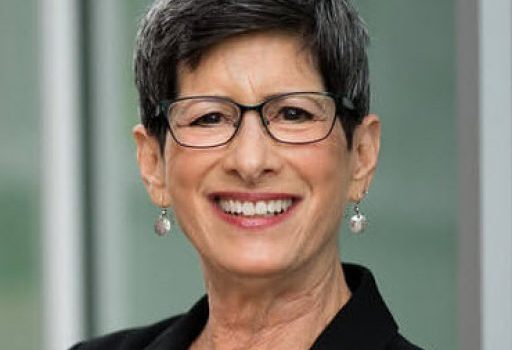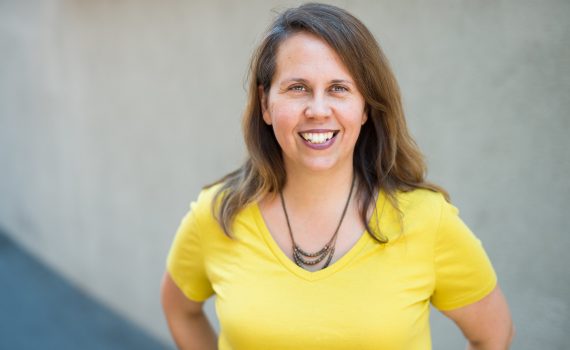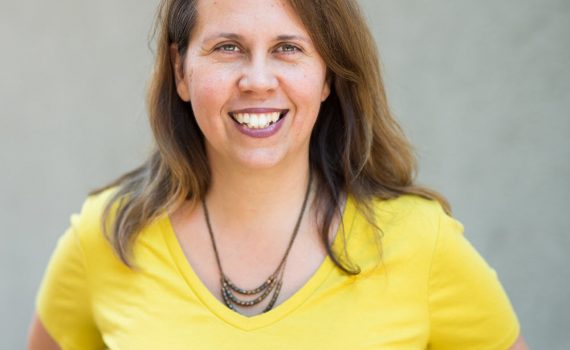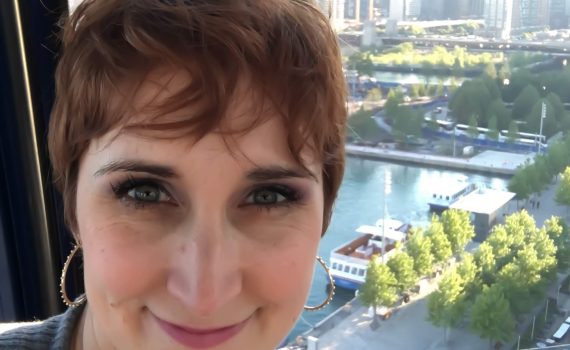
Episode 021: Marcy Phelps–Introvert Strengths
Category:introversion,Introverted Leadership,Leadership,PodcastPodcast: Play in new window | Download
Subscribe: Spotify | Amazon Music | iHeartRadio | Podchaser | TuneIn | Deezer | RSS
Episode 021 Show Notes: Marcy Phelps
Introduction

Key concepts
- Serving on a non-profit board
- Mentoring is a great form of leadership
- Mentoring benefits the mentor and the mentee
- Start your leadership journey by starting small
Quotable
Mentoring is a great leadership role for introverts, because we are so good at one-on-one and listening and hearing what people need.
Mentoring goes both ways. Both the mentor and mentee benefit from the experience.
I thought introversion was something I had to overcome and there was something wrong with me, until I read that book Quiet by Susan Cain.
How different introverts feel, like a weight is lifted off of them, and they understand that they have strengths which are every bit equal or sometimes better than some other leadership characteristics.
I didn’t realize is how dramatic a change it can make for introverts when they realize that what they’ve believed has been a handicap can actually be turned into a strength.
Resources or Products Mentioned in this Episode
Links
- Follow Hope for the Introvert on Twitter
- Like my page on Facebook
- Support me on Patreon
- Get swag for Hope for the Introvert and Introverted Leadership at Zazzle
Transcript
Ben: Joining us today is Marcy Phelps. As the founder and president of Denver-based Marcy Phelps and Associates, Inc. (formerly Phelps Researching), Marcy helps clients manage risk and prevent fraud. She started her firm in 2000 after earning a Master’s degree in Library and Information Services from the University of Denver, and is a Colorado-licensed private investigator and a Certified Fraud Examiner. Marcy blogs about investigative research at www.marcyphelps.com/blog. You can contact Marcy through the blog or on LinkedIn as Marcy Phelps. I encourage our listeners to visit Hope for the Introvert.com where you’ll find complete show notes including a transcript of today’s conversation.
Ben: You mentioned AIIP, the Association of Independent Information Professionals. What you didn’t mention at the time when you mentioned it earlier in the conversation, was that you were actually a past president and currently a director for the organization?
Marcy: No, I was a director and then I became the president a few years after that.
Ben: What led you into doing that? Professional organizations have a little bit different cultures depending on the organization. Was this something–you had an opponent? Did you have to actively campaign, or is it quieter than that? I know when I ran for Vice President of the Society for Technical Communication, I probably made a lot more noise in terms of campaigning than most other people have. which I’ve had mixed feelings about since. But I’m curious what you found that experience like from one, deciding that you wanted to become a candidate for either the board or the presidency, and what it was like going through that whole campaign, in a sense?
Marcy: Well, I was pretty lucky. It’s very low key in AIIP. Before I ran for president, the role was uncontested. The board selected the president–the candidate–and then the membership votes, Yea or Nay. The year I was asked by the board to run, they changed the policies and procedures and they allowed nominations from the floor, including self nominations. so I was the first president to run in a contested election. So it’s funny you should mention that. And I immediately felt awkward about it. But then I realized it wasn’t a real campaign. I needed to put out a few messages myself and my plans for the presidency if I was elected. Even that felt a little odd, I have to say. But it was very low key. So I was lucky. And, I wound up being elected so I didn’t really have to do too much. It was awkward though. Excuse me. It was awkward because it was the first time it had ever happened in the association, so nobody knew quite what to do.
Ben: That’s funny. What happens with STC, on the local level with chapters, it’s very rare that there are contested elections. It’s difficult enough to get people who are willing to serve. But at the Society level, they’re always–well for some of the positions there are always multiple candidates, especially for the vice president-president, immediate past president sequence. But for some of the other positions, they will often or sometimes decide just to have the one candidate and than it’s a Yea or Nay. But it is interesting how these organizations are different. So one of the things I’ve found and I’ve found now that I’m on the board, and this is my second term on the board with STC, is that does give me a different role. It does give me a different role when I go to a conference, and I’m not able to not be engaged with people there. So I kind of have to make a point of making sure that I am stepping outside my comfort zone and engaging people there. I want them to feel welcome. Yeah, it is different when you go with a specific role.
Marcy: Well, and I have to say, AIIP is a very unique association. We’re smaller and we don’t have chapters, so our annual conference is a big deal. It’s like going to hang out with family. It really is. It’s a smaller group. We spend the first hour of the conference–everybody comes up and gives their thirty second introduction. It’s very easy for an introvert to mix and mingle at an AIIP Conference. It’s very intimate and like family.
Ben: Great! One of the questions that I have–and for our listeners–one of the things that we do with these podcasts is provide our guests with a structure of the things that we’re going to talk about., so it’s not very, very awkward! We started touching on this already, but besides being the past president and a past director for AIP, in what other ways do you feel like you’ve been an influencer or leader, outside of that organization or inside of it, either way?
Marcy: Well, in AIP, I am also a mentor. We have a mentoring program and I’m currently mentoring another private investigator. Not everybody in AIIP is a private investigator, but we were connected because of that. So that is one type of leadership role. And I think it’s a great one for introverts, because we are so good at one-on-one and listening and hearing what people need. So that’s been very rewarding. Especially with this mentee, he’s very, very sharp and I think I’m learning more than he might be, but that’s a really great way to get into leadership a leadership role.
Mentoring is a great leadership role for introverts, because we are so good at one-on-one and listening and hearing what people need. Click To Tweet
Marcy: Also, as a solopreneur, I bring in subcontractors to work with me. I have one subcontractor on a regular basis, and then others that I bring in when I need help on a specific topic–verifying a degree from a very small Swedish university where no one speaks English–that kind of thing. Managing, recruiting, managing and managing the quality, that’s another leadership role I think outside of association work. I used to play golf and there wereonly day leagues for women, and I was frustrated because there were several of us who worked. So I put together a league in the evening for people who worked in the daytime–those kinds of things.
Ben: Great! It’s interesting what you’re saying about your current mentee and learning from him. I have found the same thing through every mentoring experience that I’ve been part of. The assumption from the outside, I think, is always that they’re one way, but I’ve never found it to be that way. I found them to be–well, not only the rewarding fact of feeling like you’re helping somebody along in their career, but also the fact that I benefit from those conversations as well.
Mentoring goes both ways. Both the mentor and mentee benefit from the experience. Click To Tweet
Marcy: Absolutely, Ben. I learn something new from every mentee. Even the ones that don’t work out really well, they kind of confirm what I need to know about running a business, so I learned from the smart people who are doing really well and then I learned from even the not so great experiences,
Ben: Another question for you–and the podcast essentially is–part of our whole reason for doing this is to help people who are leaders and introverts. What recommendations do you have for introverts who want to become influencers or leaders?
Marcy: Well, I recommend probably starting small. Just get involved in an organization that you feel comfortable with, and start volunteering on a smaller committee with them, and getting involved and meeting people that way. Volunteering is a fabulous way to get to know people and work your way up maybe to chairing a committee or something like that, or serving on the board of a smaller association. I think mentoring, again, something face to face or small group like that. Probably just start small and work up and you’d be surprised! Leadership I don’t think requires that you have to be an extrovert. I think leadership–introverts are good at leadership and we shouldn’t be scared by it.
Ben: That takes us to another focus on this. A lot of –I don’t know if it’s press or things that are out there–and I know I had a friend share an article with me today–there seems to be a perception that being introverted is a handicap or weakness and not a strength. What is your perspective on that?
Marcy: That one really annoys me. I thought it was too. I thought it was something I had to overcome and there was something wrong with me, until I read that book Quiet by Susan Cain, The Power of Introverts in a World that Can’t Stop Talking. I love that book and I highly recommend it because I kind of found it empowering because she emphasizes that theme that this is not a defect or a handicap that you need to overcome. You have to adapt. You have to make it work for you. But it’s not something I need to apologize for anymore. I found that book very empowering in that way.
I thought introversion was something I had to overcome and there was something wrong with me, until I read that book Quiet by Susan Cain, Click To Tweet
Ben: Yeah. And I would say that I did too. I read it I think the year it came out, and It was just–I describe it as transformative, because it–and I’m not sure how I felt about being introverted either way before that, but I have talked to so many people the first time they go through that book or the first time they’re exposed to any of the current writing around introverts and leadership or anything like that. How different they feel. Just that it’s like a weight is lifted off of them, and they understand that they have strengths which are every bit equal–or sometimes better–than some other leadership characteristics that are out there. And I think they find it empowering. I think it’s a great word for it. It’s been a great–it’s kind of been the introvert manifesto over the last decade.
How different introverts feel, like a weight is lifted off of them, and they understand that they have strengths which are every bit equal or sometimes better than some other leadership characteristics. Click To Tweet
Marcy: I think it’s a big relief. I don’t think I’ve mentioned this to you earlier, but I used to have a blog called Power Networking for Introverts, because my friends encouraged me to do that because they thought I was so great at networking even though I’m an–I was an introvert, and I wrote about that concept in one of my posts, and the response was incredible. People saying, “Thank you, this was a huge relief. I thought there was something wrong with me.” That was really–that was striking. That was striking,
Ben: Is that post still available?
Marcy: No, I took that all down. That was a very, very long time ago. But you’ve given me an idea of something to write about,
Ben: So when you get that posted, or whatever you’re going to end up doing, let me know and I will provide a link to it. Because like you’ve said, for me, the most amazing part of this whole journey and starting to work on leadership and introversion, has really been seeing what a huge difference it can make in people’s lives. And that in many ways was unexpected. Even though I knew it had made a big difference for me in terms of how I understood how I could be a leader and things like that. What I didn’t realize is how dramatic a change it can make for people when they realize that what they’ve believed has been a handicap can actually be turned into a strength.
I didn't realize is how dramatic a change it can make for introverts when they realize that what they've believed has been a handicap can actually be turned into a strength. Click To Tweet
Marcy: Yes. Yes. And isn’t it amazing the power of the content you put out there sometimes. Sometimes, you never realize the effect it’s going to have on someone.
Ben: So I have a question not on the questionnaire. Marcy, what is one thing about you that people would be surprised to learn? And you can take a minute and think about it.
Marcy: Oh boy. I have a black belt in taekwondo. I haven’t practiced taekwondo in a long time, but I did obtain my first degree black belt some time ago.
Ben: That’s awesome. I certainly had no idea of that!
Marcy: That was hard. I had a hard time with the sparring part, having the intent of striking somebody. I had trouble with that, and that’s not necessarily the intent. The intent is to defend yourself, but you have to sometimes strike others to do that. And I had a hard time with that. I was raised, you know, you’re not supposed to hit people, and um [laughing], but I loved it. I loved the discipline and it was something to do with my young sons. It’s not a lot of things mothers can do with their sons, that’s–you know–sportswise. So, so that’s one thing. I don’t know. I’m pretty open. [laughing]There’s not much that people don’t know about me because I write, and I’m pretty much a what you see is what you get kind of person.
Ben: Ok, great! So, any other parting thoughts?
Marcy: Parting thoughts. Just again, focus on your strengths as an introvert because we have so many and very valuable strengths. Like Susan Cain says, it’s kind of a noisy world and our quiet can be very powerful. And also remember that there are workarounds. It’s just like in technology, when something doesn’t work, we find a workaround. Our introversion–we just find a workaround. I know in my business I have to get out there and be with people and interact. So, I just make it happen by figuring out my workarounds.
Ben: Sounds great! Thank you, Marcy for a great interview.

















